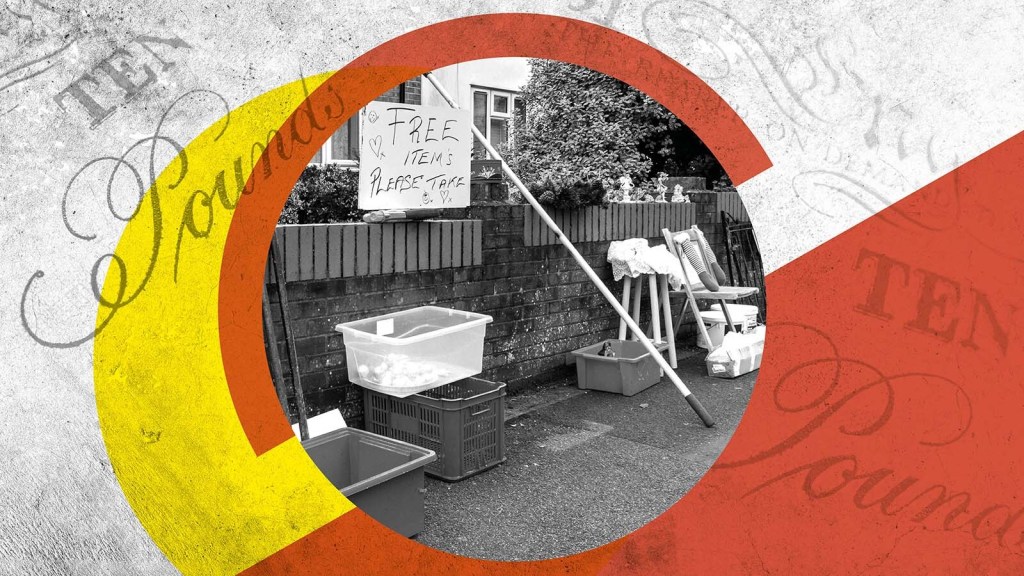Should Local Authorities Impose Fines for ‘Middle-Class Fly-Tipping’?
The Local Government and Social Care Ombudsman has advised local authorities to reconsider their approach to what some describe as ‘middle-class fly-tipping’—leaving items such as furniture, books, and even homegrown tomatoes on sidewalks for community members to take. With fines reaching as high as £500, we consulted two experts on whether such penalties are justified.
Paul Sanderson, the Chief Executive of The Recycling Association, provided his insights.
According to Sanderson, placing unwanted items on the street for others to utilize has both environmental and social advantages. If done considerately, it should not result in fines.
The principle of ‘reduce, reuse, recycle’ is widely recognized. Offering functional household items to neighbors for free aligns with ‘reuse,’ which is even superior to recycling in many instances.

This method is the most eco-friendly option, and both local councils and residents should approach this with common sense.
However, if individuals are consistently abandoning a large volume of waste, obstructing pathways, or creating a mess, then regulations should be enforced.
Sharing small items like old records, furniture pieces, or excess homegrown vegetables outside your residence shouldn’t be labeled as fly-tipping, provided they don’t disrupt pedestrian traffic.
Although some councils have reuse facilities, they often prefer items that are in good condition or easily upcyclable. Used sports gear, for example, may have a better chance of finding a new home on a neighboring street than in a reuse facility.
This results in usable items being sent to recycling centers instead, which is better than direct disposal but less efficient than reuse. Recycling also incurs costs to local authorities, ultimately affecting taxpayers and consuming more energy than simply reusing an item.
That said, anyone opting to leave items outside should follow basic guidelines—if items are not taken within a reasonable timeframe, they should be brought back indoors or donated to online thrift stores or charities.
For larger items, such as furniture or old electrical appliances, residents should ensure that these are recycled properly via their local council. Retailers often provide recycling services when purchasing new appliances.
If no recycling service is available, local councils typically offer bulky waste collection or have reuse facilities. However, when it comes to smaller items, supporting ‘middle-class’ reuse is a favorable option, according to Sanderson.
Yes
On the contrary, Paul Dimoldenberg, a Labour member of Westminster City Council, argues against the phenomenon.
His years in local government have led him to scrutinize the motivations of those who place significant amounts of unwanted items outside their properties for passers-by to take.
Piles of discarded furniture and literature are frequently adorned with hastily written ‘please take!’ signs.
Dimoldenberg recalls the scene of a couple mid-move grappling with a shabby IKEA shoe rack, fraying tempers leading them to wish someone would just take it away.

While he sympathizes with the desire to help, too often these offerings result in broken furniture, warped cabinetry, and a box of outdated novels—items that are neither appealing nor usable.
Though he acknowledges that some may view fines as excessive, he asserts that fly-tipping poses significant challenges in Westminster, with 500 fines already issued for waste dumping this year.
This trend can transform the city’s streets into hazardous zones, particularly for those with visual impairments, and burden waste management teams.
While the initiative to encourage reuse and recycling is commendable—Westminster City Council actively promotes campaigns for such practices—residents need to recognize the impracticality of expecting community members to be on the lookout for literary treasures.
Items left outdoors are often degraded by exposure to the elements, making them less desirable for collection.
Westminster City Council prioritizes warnings about inappropriate waste placement before resorting to fines, but emphasizes that such measures are essential for maintaining clean and safe public spaces.




Post Comment